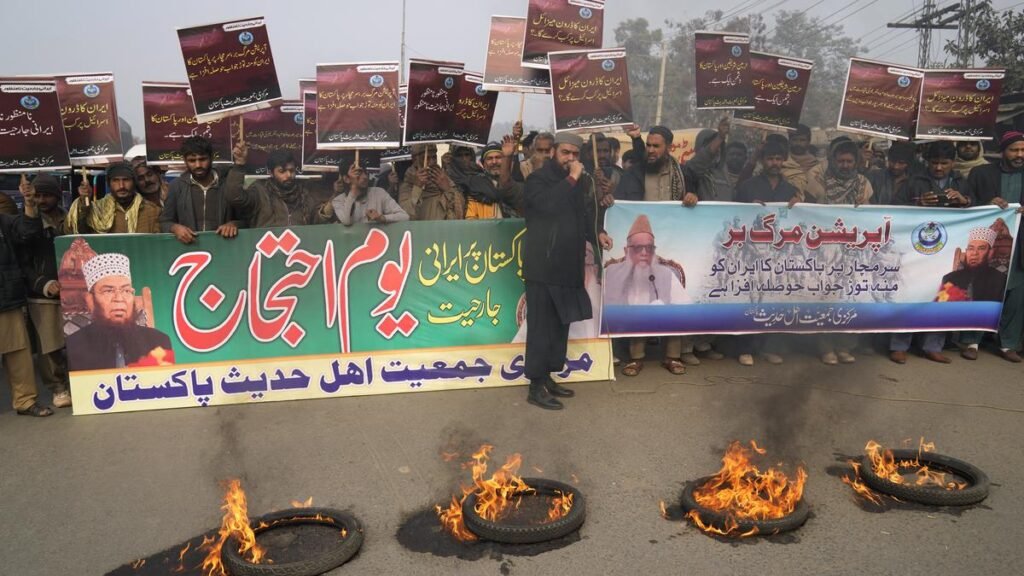Following the exchange of deadly air strikes with Iran on militant targets, Pakistan’s prime minister conducted an emergency security meeting on Friday, involving military and intelligence chiefs. The military actions occurred in the Baluchistan border region, shared by both countries, intensifying regional tensions heightened by the Israel-Hamas conflict. Iran conducted a missile and drone attack on alleged “terrorist” targets in Pakistan on Tuesday, prompting Pakistan to strike militant targets inside Iran on Thursday. In response, Pakistan recalled its ambassador from Tehran and barred Iran’s envoy, currently on a visit home, from returning to Islamabad.
The international community, including the United Nations and the United States, has urged restraint, while China offered to mediate. The Prime Minister convened the National Security Committee meeting, attended by the Chief of Army Staff and intelligence head. During the meeting, Pakistan’s foreign minister spoke with his Iranian counterpart, expressing Pakistan’s readiness for collaboration based on mutual trust and cooperation, particularly emphasizing closer cooperation on security matters.
Analysts predict a de-escalation, considering both sides’ restrained rhetoric. Antoine Levesques of the International Institute for Strategic Studies suggests that the two countries appear to be on even ground symbolically, with minimal risks of further escalation, possibly diminishing over time.
Border closure fears
Pakistan’s leader, Anwaar-ul-Haq Kakar, curtailed his visit to the World Economic Forum in Davos, Switzerland, in the aftermath of the recent strikes. His caretaker government is steering Pakistan towards general elections in three weeks, marred by allegations of pre-poll rigging.
Both Tehran and Islamabad maintain that they targeted their respective domestic militants taking refuge on foreign soil. The collective death toll, comprising mostly women and children, reached 11 on both sides of the border, cutting through an arid region marked by decades-long militant activities.
In Panjgur district’s remote villages near the strike site, where mobile signals are scarce, farmers gathered information from visiting security officials who established checkpoints in the area. Maulana Mohammad Sadiq, a 42-year-old prayer leader of a small seminary, recounted the uncertainty, stating that helicopters were flying in the direction of the Iranian strike, but the residents were unaware of the events.
The villagers expressed concerns that worsening relations could lead to border closures, disrupting Iranian trade crucial for employment and food imports in the region. Haji Mohammad Islam, a 55-year-old resident, warned that closed borders might lead to starvation and increased militancy, as youth could join separatist organizations.
Baluch separatists have been conducting a low-level insurgency against Pakistani authorities in this largely ungoverned, impoverished region, seeking a more equitable share of mineral resources. Human rights groups report widespread enforced disappearances and extrajudicial killings in the military’s crackdown on the insurgency. Additionally, militancy has surged along Pakistan’s border with Afghanistan following the Taliban’s return to power in 2021.
